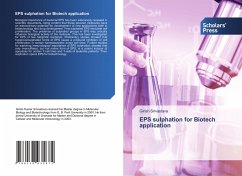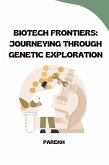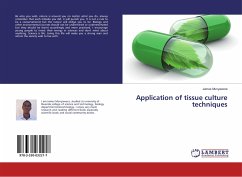Biological importance of bacterial EPS has been extensively reviewed in scientific documents, being evident that these peculiar molecules have an extraordinary potential for development of new applications both in biotechnology and drug development. Few sulphated EPS modulate cell proliferation. The presence of sulphated groups in EPS may critically influence biological activity of the molecule. This has been investigated for EPS of few halophilic bacterias. Preliminary studies showed that hyperoversulphated forms of EPS cause a profound inhibition of cell proliferation in certain haematopoietic tumor cell lines. Further studies for exploring immunological importance of EPS sulphation showed that only oversulfated, but not native form of EPS, is a potent inducer of apoptosis for certain T-cell lines and T-cells of leukemia patients. Thus sulphation opens EPS for biotechnology.
Biological importance of bacterial EPS has been extensively reviewed in scientific documents, being evident that these peculiar molecules have an extraordinary potential for development of new applications both in biotechnology and drug development. Few sulphated EPS modulate cell proliferation. The presence of sulphated groups in EPS may critically influence biological activity of the molecule. This has been investigated for EPS of few halophilic bacterias. Preliminary studies showed that hyperoversulphated forms of EPS cause a profound inhibition of cell proliferation in certain haematopoietic tumor cell lines. Further studies for exploring immunological importance of EPS sulphation showed that only oversulfated, but not native form of EPS, is a potent inducer of apoptosis for certain T-cell lines and T-cells of leukemia patients. Thus sulphation opens EPS for biotechnology.
Biological importance of bacterial EPS has been extensively reviewed in scientific documents, being evident that these peculiar molecules have an extraordinary potential for development of new applications both in biotechnology and drug development. Few sulphated EPS modulate cell proliferation. The presence of sulphated groups in EPS may critically influence biological activity of the molecule. This has been investigated for EPS of few halophilic bacterias. Preliminary studies showed that hyperoversulphated forms of EPS cause a profound inhibition of cell proliferation in certain haematopoietic tumor cell lines. Further studies for exploring immunological importance of EPS sulphation showed that only oversulfated, but not native form of EPS, is a potent inducer of apoptosis for certain T-cell lines and T-cells of leukemia patients. Thus sulphation opens EPS for biotechnology.








